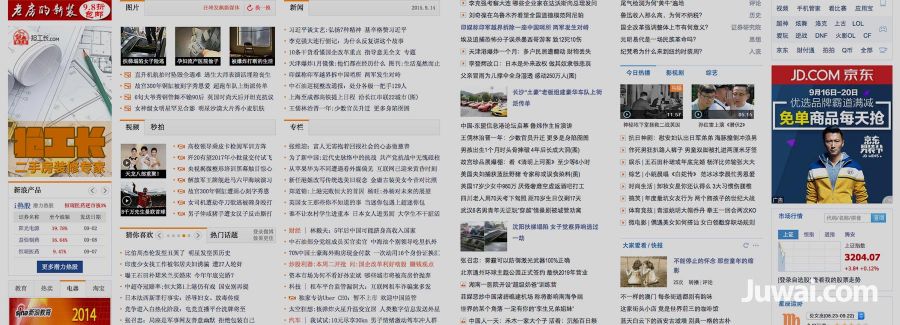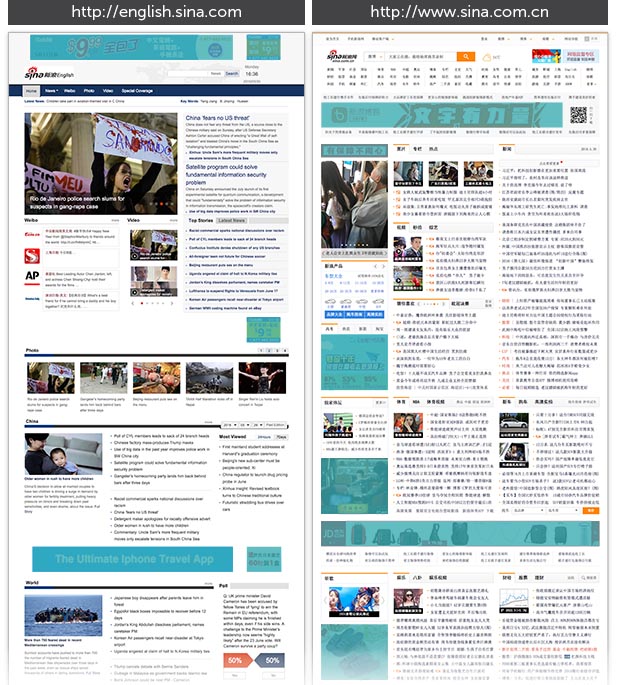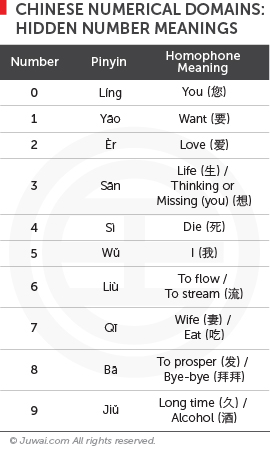You've successfully copied this link.
5 must-knows to boost your site appeal to Chinese

China’s 668 million internet users1 spent $589.61 billion (¥3.877 trillion) online in 20152 alone.
What’s more, that figure – a 33.3% increase from 20142 – is one that can only go up, considering China’s massive internet user population underwent a growth surge of 40 million new netizens last year.1
Now those stats and numbers are impressive enough to make any marketer’s mouth water. However, for those looking to stake a claim in what the Boston Consulting Group (BCG) describes as a ‘once-in-a-lifetime’ market4, knowing the figures just doesn’t cut it.
If you’re planning to market to Chinese buyers online, understanding their expectations, consumption patterns, and cultural backgrounds before incorporating these insights to build your online presence makes all the difference.
After all, capturing Chinese buyers online is a whole new ball game that would require an eminently different approach.
Chinese websites vs. Western websites
The first thing to understand is that Chinese websites and Western websites are polar opposites in many aspects. In fact, looking at Chinese e-commerce websites, one would think that most Chinese website designers suffer from horror vacui – a “fear of empty space” in Latin.
The amount of information crammed into a single page could easily be described as cluttered, chaotic, and even claustrophobic to look at, much less navigate. It’s practically an information overload and a baffling disparity for non-Chinese netizens.
This is even more apparent as minimalism is favoured in most advertisings and designs – especially for websites – in the West, and probably most parts of the world. After all, it’s commonly perceived that tasteful understatement appeals more to the taste of the affluent.
Not so in China though, where apparently – or at least in terms of websites – less is not always more. Here, we take a look at Sina, one of China’s most popular sites that generated 82 million daily page views and 629 million unique visits in March 2016.5

In the Chinese version of Sina, there are more ads (highlighted in blue). Links dominate and pepper the site as well, while overflowing content is jam-packed into the site.
Sina’s English site, however, is a stark contrast. The website looks comparatively cleaner, with more prominent emphasis on photo images. Content also looks less overloaded, with top stories and segments highlighted and better defined.
5 things to know about Chinese websites
The side-by-side comparison above reveals the drastic differences to Western portals in terms of layout, content organisation, and functionality that reflect the nuances of the China market – but why? We break down China’s convoluted website user interface (UI) into 5 elements below:
#1 Language differences
Part of the cluttered feeling stems from the fact that the Chinese language doesn’t have italics or capital letters. This limits opportunities for adding the visual punch that you get with Latin alphabets, making it difficult to create the contrasts required to organise information with type alone.
The complex typography of Chinese characters also adds to the chaos, as Latin characters looks comparitively simpler and cleaner.
That said, logographic languages, such as Chinese, contain more meaning in fewer characters and less space, while English requires more space to communicate the same message.
So, sites tailored to the China market can also take advantage of this difference between the Chinese and the English language.
#2 Minimum time, maximum info dissemination
Time is money, and this rings truer than ever in China. Thanks to the Great Firewall of China, most Chinese internet users are still plagued with slow loading times and limitations when it comes to international sites.
Hence, displaying as much information as possible is vital to retain consumer interest in China, so what may seem to be clutter to you is in fact seen as “content-rich” by Chinese internet users.
This is particularly crucial for retail portals, where every second counts when it comes to vying with competitors online to secure their next online customer.
Chinese consumers prefer it too, as they want information as easily accessible as possible – this means providing more information or having information aggregated for easy consumption. A good example would be our Juwai.com Chinese Company Pages, where we aggregate all agent's listings together in one place.
#3 Assurance and safety
Chinese consumers require a high degree of assurance – likely fuelled by the amount of fake or low-quality products in China – before making a purchasing decision.
So, while catchy headlines or pretty images are crucial in drawing interest and attention, but it won’t help seal the deal if there is insufficient information to convince Chinese buyers that they’re making a worthy purchase, especially as property is a major financial investment.
This is doubly true when it comes to marketing international real estate online to Chinese buyers, most – if not all – who are unfamiliar with overseas markets in a foreign country, as well as its different language and systems, such as legal and banking.
In fact, a recent Juwai survey revealed that one of the main reasons Chinese prefer investing in new projects over existing properties abroad is because they perceive newly-built properties to be safer and of higher-quality.
To sum it up, this is why the general consensus in China's internet realm is to abide by “the more information, the better results” rule, which brings us back to why Chinese websites are usually information-saturated.
Click here for 5 tips to gain trust from your Chinese buyer.
#4 Online reflection of China
Fact is, Chinese sites very much mirror China’s urban landscape. Walk around a major city in mainland China, and you may very well be overwhelmed by its bright advertisements, bustling boulevards, expansive choice of retail options, and Chinese shoppers swarming around you.
Websites designers in China aim to recreate this on Chinese websites, ensuring that every spare inch of space gets used up to mimic a boisterous and frenetic bazaar atmosphere.
Not only would it be familiar for Chinese online shoppers, it also helps drive the same buzz and excitement that comes with offline retail therapy experiences, yet with more convenience and discretion from the comfort of their own homes.
 #5 Digits sometimes play a role
#5 Digits sometimes play a role
From domain names to emails to social media accounts, such as Tencent’s QQ – one of China’s largest instant messaging app – numerical digits are a nifty way to catch Chinese attention in China’s cyberspace.
Beyond the fact that Chinese have a penchant for numerology, the numerical system is a universal standard long adopted – and adapted – in China. To Chinese, numbers are something familiar, as opposed to languages using foreign Latin alphabets.
Not only are numbers easier for Chinese to remember, but numbers are also homophones or near homophones for certain Chinese words – turning them into quirky and creative wordplays when used alone or combined.
The Chinese site URL for Alibaba – China's most prominent e-commerce goliath – is 1688.com, which is pronounced as “YÄo Liù BÄ BÄ” and is a pretty close match to “Alibaba”.
So if you were thinking all those Chinese portals were simply using random numbers, think again.
Boost your web appeal to Chinese
Considering 91% of China’s high net worth individuals (HNWIs) go online every day3 – 55% who procure investment information via the internet websites6 – reaching Chinese buyers online is vital. Yet, this is easier said than done when addressing a market that uses a different internet realm behind the Great Firewall of China.
For example, while SEO (Search Engine Optimisation) is just as important (if not more) in China as other countries, Baidu reigns as the dominating search engine in China, where it has more market share than Google has in the US. As such, SEO and SEM (Search Engine Marketing) rules in China can be very different.
In fact, given the vast cultural and language differences between Western and Chinese websites, we're constantly working on Juwai.com's SEO appeal to Chinese consumers, and tailoring our site to meet the needs of this audience for our international real estate clients.
That said, we hope what we've shared above has helped you better understand how to tailor your website to effectively capture Chinese buyer attention online, and in return aid you in marketing more successfully to Chinese.
However, if you're seeking results but are not IT savvy, sign up now and let us help you on Juwai.com, which not only offers functionality catered to China's massive online population, but also tops Baidu as the leading Chinese-language global property portal with the highest page rank.


